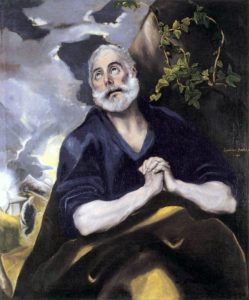
Following last month’s posting on Forgiveness, a friend, who has been having a debate with a neighbor on this subject, wrote and asked me if we should forgive people who have not asked for our forgiveness or expressed their sorrow for their incorrect actions?
Of course, I said, “No.” And, here’s why…
First off, there is some contention with the translation of Christ’s comment, while on the cross, “Forgive them, for they know not what they do,” which I quoted in that posting.
According to more knowledgeable sources, the statement actually translates as, “Have mercy on them, for they know not what they do.” To me, that rings more true and makes more sense. Words matter.
There were many such misquotes and errors made, whether intentionally or not, during the Council of Nicea over 300 years later, when the Church based on Christ’s teaching was unfortunately changed into a manipulated state religion by Emperor Constantine.
However, as the precursor to what has evolved into present-day therapy, the practice of Confession remained fairly consistent with its origins, surviving based on the principle of Forgiveness that must be requested before being granted.
Today, it works as follows… After asking to be blessed, the penitent confessor must be, “heartily sorry,” “detest” his/her wrong-doing, be “firmly resolved” to “amend” his/her life and be given a penance.
So, intention matters even more, for only then is forgiveness given.
It should be pointed out that intention has long been a factor in the Hebraic tradition, as well. When a contrite person asks for it, forgiveness must be granted. If it is not given, the burden/karma of the transgression reverts to the one to whom the request was made.
Bottom line, one can be merciful toward or, perhaps, pity those who have unknowingly caused harm. But, if someone has knowingly done wrong, they must ask to be forgiven and be willing to make amends before it is extended to them.
The stain of an erroneous action is not cleansed until balance is restored. Then, justice is served and renewal can begin.
Photo: The Tears of St. Peter
El Greco, Spain, 1580
